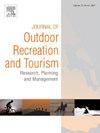基于野外的野生动物旅游影响:系统综述
IF 4.4
3区 管理学
Q1 HOSPITALITY, LEISURE, SPORT & TOURISM
Journal of Outdoor Recreation and Tourism-Research Planning and Management
Pub Date : 2025-06-05
DOI:10.1016/j.jort.2025.100902
引用次数: 0
摘要
本系统综述考察了以动物为基础的旅游在生态、社会和经济领域的多方面影响。分析揭示了旅游业务与野生动物种群之间复杂的互动模式,行为改变、人类与野生动物的冲突和文化象征意义成为主导主题。研究表明明显的地理集中在非洲和亚洲的背景下,对狮子,豹子和老虎的分类有很大的偏向。尽管一些种群通过适应性行为策略表现出显著的恢复能力,但证据表明,管理框架不足主要造成了负面的生态后果。虽然旅游业产生巨大的经济价值,并可能促进保护倡议,但过度依赖的风险和不公平的利益分配需要仔细考虑。人地冲突动态揭示了与旅游业发展的复杂关系,适当的管理可以通过经济选择和态度变化促进共存。旅游业对科学研究和环境教育的贡献显示出希望,特别是通过公民科学倡议,尽管研究报道中的系统性偏见值得注意。实施可持续旅游框架需要综合管理协议,包括标准化监测系统、循证观影指南和健全的社区参与机制。这种综合为基于证据的旅游管理提供了基础,同时阐明了通过精心平衡的发展方法优化保护成果的关键途径。本文章由计算机程序翻译,如有差异,请以英文原文为准。
Impacts of wildlife tourism based on felids: A systematic review
This systematic review examines the multifaceted impacts of felid-based tourism across ecological, social, and economic domains. Analysis reveals complex patterns of interaction between tourism operations and felid populations, with behavioral modifications, human-wildlife conflicts, and cultural-emblematic significance emerging as dominant themes. Research demonstrates pronounced geographical concentration in African and Asian contexts, with substantial taxonomic bias toward lions, leopards, and tigers. Evidence indicates predominantly negative ecological consequences from inadequate management frameworks, though some populations demonstrate remarkable resilience through adaptive behavioral strategies. While tourism generates substantial economic value and potentially catalyzes conservation initiatives, risks of overdependence and inequitable benefit distribution necessitate careful consideration. Human-felid conflict dynamics reveal intricate relationships with tourism development, where proper management can foster coexistence through economic alternatives and attitudinal changes. Tourism's contribution to scientific research and environmental education shows promise, particularly through citizen science initiatives, though systematic biases in research coverage warrant attention. Implementation of sustainable tourism frameworks requires comprehensive management protocols incorporating standardized monitoring systems, evidence-based viewing guidelines, and robust community engagement mechanisms. This synthesis provides foundation for evidence-based tourism management while illuminating critical pathways toward optimizing conservation outcomes through carefully balanced development approaches.
求助全文
通过发布文献求助,成功后即可免费获取论文全文。
去求助
来源期刊

Journal of Outdoor Recreation and Tourism-Research Planning and Management
HOSPITALITY, LEISURE, SPORT & TOURISM-
CiteScore
6.70
自引率
5.30%
发文量
84
期刊介绍:
Journal of Outdoor Recreation and Tourism offers a dedicated outlet for research relevant to social sciences and natural resources. The journal publishes peer reviewed original research on all aspects of outdoor recreation planning and management, covering the entire spectrum of settings from wilderness to urban outdoor recreation opportunities. It also focuses on new products and findings in nature based tourism and park management. JORT is an interdisciplinary and transdisciplinary journal, articles may focus on any aspect of theory, method, or concept of outdoor recreation research, planning or management, and interdisciplinary work is especially welcome, and may be of a theoretical and/or a case study nature. Depending on the topic of investigation, articles may be positioned within one academic discipline, or draw from several disciplines in an integrative manner, with overarching relevance to social sciences and natural resources. JORT is international in scope and attracts scholars from all reaches of the world to facilitate the exchange of ideas. As such, the journal enhances understanding of scientific knowledge, empirical results, and practitioners'' needs. Therefore in JORT each article is accompanied by an executive summary, written by the editors or authors, highlighting the planning and management relevant aspects of the article.
 求助内容:
求助内容: 应助结果提醒方式:
应助结果提醒方式:


